The Financial Action Task Force (FATF) is a global leader in shaping policies against money laundering, terrorist financing, and the proliferation of financing (AML/CFT and CPF). As an authoritative body, FATF’s primary goal is to promote worldwide adoption of AML principles, monitor the implementation of its recommendations, and review trends in money laundering (ML), terrorist financing (TF), and proliferation financing (PF) to mitigate these risks.
While FATF itself does not have the power to impose direct penalties on nations, it plays a critical role in identifying countries that exhibit strategic weaknesses in their AML/CFT and CPF frameworks. This is done through two key watchlists that FATF publishes three times a year.

FATF Watchlists: Blacklist and Greylist
FATF uses two primary watchlists to spotlight countries with deficiencies in their AML/CFT and CPF regimes:
- High-Risk Jurisdictions Subject to a Call for Action (commonly known as the FATF blacklist).
- Jurisdictions Under Increased Monitoring (commonly known as the FATF greylist).
The International Cooperation Review Group (ICRG) within FATF is responsible for identifying and reviewing the countries placed on the greylist. These reviews follow a structured mutual evaluation process to assess the progress of greylisted nations.
FATF’s Mutual Evaluation Process and Updates
FATF’s evaluation process is detailed in its publication titled “Procedures: For the FATF AML/CFT/CPF Mutual Evaluations, Follow-Up and ICRG”. This document outlines the procedures for the mutual evaluation process, follow-ups, and the ICRG process. The most recent update to these procedures reflects FATF’s risk-focused approach to greylisting.
Key Updates in FATF’s Greylisting Procedures:
Extended Observation Period for Least Developed Countries (LDCs):
FATF has increased the observation period for LDCs from 12 months to two years. This extension allows these nations to update the ICRG on their progress in addressing deficiencies before they risk being placed on the greylist.
Additional Time for Addressing Deficiencies:
LDCs are given more time to correct any deficiencies before they are considered for greylisting. This adjustment provides lower-capacity nations with a fairer chance to meet FATF’s requirements.
Exceptions for Low-Capacity Nations:
LDCs with limited financial sectors will not be greylisted if they do not pose a substantial risk for ML, TF, or PF. This change ensures that nations with smaller financial sectors are not unfairly penalized.
Focus on High-Risk, High-Impact Nations:
FATF now prioritizes the evaluation of higher-income countries and jurisdictions with large financial sectors. The reasoning behind this is that shortcomings in these countries pose a greater risk to the global financial system, and therefore require more urgent attention.
Levelling the Playing Field in AML/CFT Compliance
These updates are designed to level the playing field for all nations, regardless of their financial capacity, when undergoing ICRG review. By allowing more time for LDCs and focusing on higher-risk jurisdictions, FATF ensures that its assessments are both fair and effective. Ultimately, the updated procedures reflect FATF’s commitment to a balanced and risk-based approach to fighting money laundering and terrorism financing.
In conclusion, FATF’s evolving procedures underscore its dedication to addressing the global threat posed by financial crimes. By adjusting its greylisting process, FATF acknowledges the challenges faced by low-capacity nations while maintaining a strict focus on high-risk jurisdictions that pose significant threats to international financial stability.
How Adilzone and First Compliance Can Help Elevate AML/CFT Standards
Adilzone and First Compliance are dedicated to supporting businesses in meeting the highest standards of AML/CFT compliance required by FATF. Their advanced solutions are designed to help companies establish robust compliance frameworks that align with FATF recommendations and address regulatory obligations efficiently. First Compliance offers dynamic tools such as automated KYC, real-time transaction monitoring, and customizable risk assessments, empowering organizations to identify and mitigate risks proactively. Meanwhile, Adilzone provides comprehensive AML/CFT consulting, MLRO outsourcing, and compliance training to ensure businesses in high-risk sectors are equipped with the expertise and tools needed for rigorous compliance. Together, Adilzone and First Compliance provide an integrated approach that not only simplifies compliance processes but also strengthens the integrity of financial systems against money laundering and terrorism financing threats.


